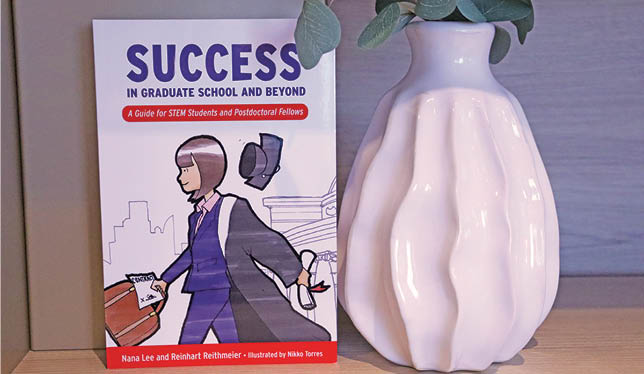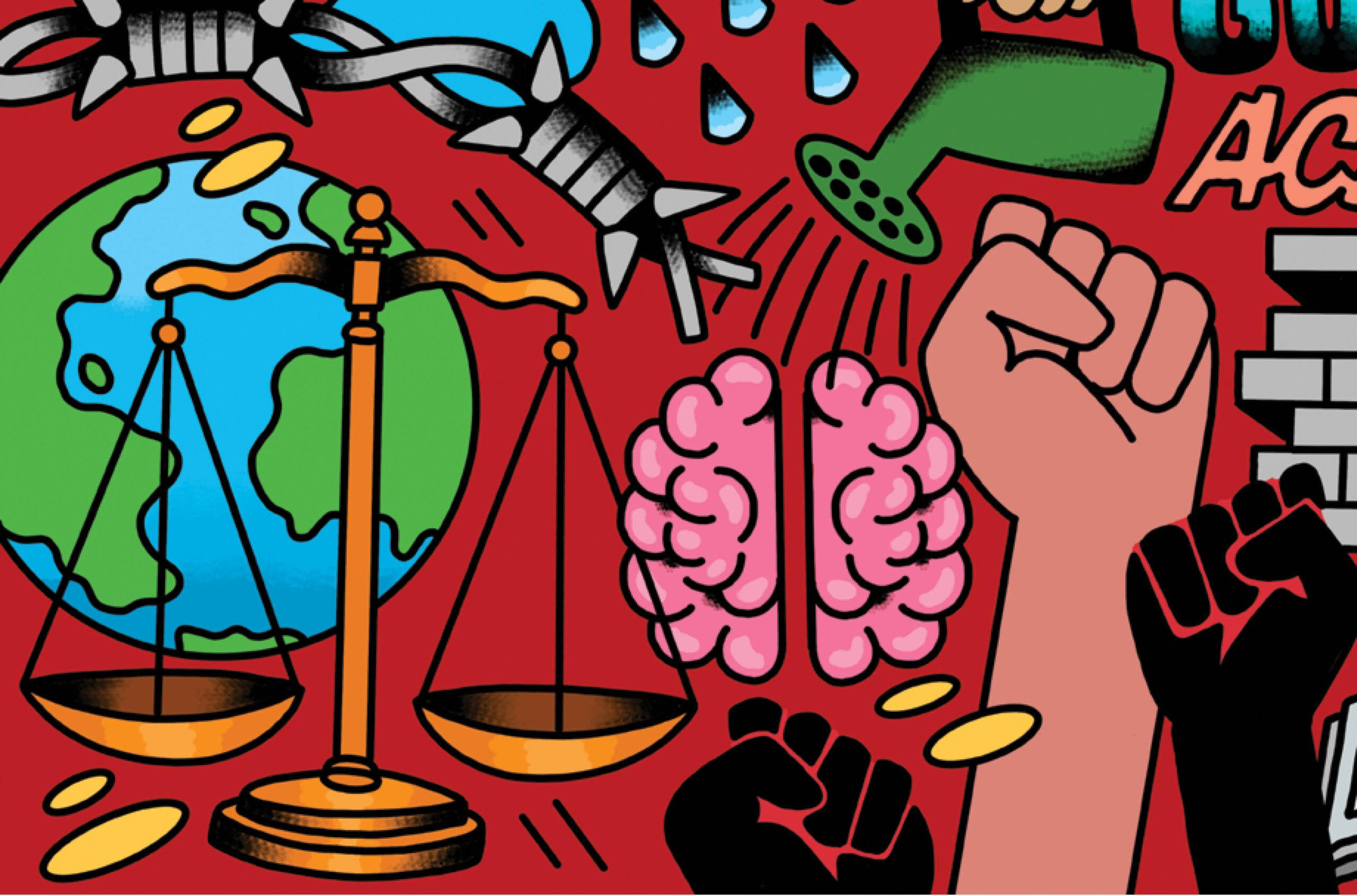New book offers hope on how to renew our troubled universities
Former University Affairs columnist Jessica Riddell wants academics to rewire their mindsets and perspectives on how Canadian universities are currently being run.

Bishop’s University English professor Jessica Riddell describes her new book, Hope Circuits: Rewiring Universities and Other Organizations for Human Flourishing (McGill-Queen’s University Press, March 2024), as a “thought leadership manifesto.” Her goal: to help readers develop the conceptual tools necessary to address higher education’s most pressing issues. Drawing upon interviews with some 300 higher education experts, Dr. Riddell offers guidance to university partners on how to rewire their mindsets and perspectives to renew the systems within which they work. Dr. Riddell is a 3M National Teaching Fellow and holder of the Stephen Jarislowsky Chair of Undergraduate Teaching Excellence at Bishop’s. She also wrote the popular Adventures in Academe column for University Affairs for more than five years, where she first mused about the concept of “critical hope.” In the acknowledgements section of Hope Circuits, she notes that the opportunity to write regularly about higher education for UA “became my first platform for what would eventually become this book.” She recently sat down with former UA editor Léo Charbonneau to talk about the book.
University Affairs: Where did the idea for this book come from?
Jessica Riddell: It started with terrible insomnia. I had just finished writing a book, Shakespeare’s Guide to Hope, Life and Learning (co-authored by Lisa Dickson and Shannon Murray, published by University of Toronto Press), and I was really restless and thinking, “I wonder what it would look like to work at a university that, instead of focusing on fiscal austerity and a scarcity mindset, was instead centred on human flourishing?” I woke up the next day and thought, I need to talk about this with other people. So that was my first set of interviews; I reached out to more than 300 people on Zoom in the early days of the pandemic, right around the time I wrote the article (for University Affairs) about toxic positivity and critical hope. I asked people: if you could build a brand new university, if you could build something called Hope University, what would it look like? What would we teach? Who would we hire? What would we research? How would we fund it? What would the governance look like? … We are so willing to scrutinize everything other than our own institutions; what happens when we put the mirror up to ourselves? So that’s where the book really emerged for me. I wrote this book as a sort of vessel for these conversations.
UA: How would you describe the current state of our universities?
Dr. Riddell: Our universities across Canada are flailing. There’s a dilution of purpose. There’s a fragmentation of mission. Our systems are built on mystification and exclusion, precarity and contingency. We have rigid vertical hierarchies. We are risk-averse in adapting to new kinds of learning or engagement. I talk a lot about how our universities have deferred maintenance on our physical campuses, but even more terrifying is we have deferred maintenance with regard to our statutes, policies, systems and structures. And because the world feels like it is speeding up and we are in the business of busyness, we haven’t slowed down to ask, “Do these structures and systems still serve us, and did they ever serve many of us?” That is the question that we have to ask ourselves as we move through what I believe to be a paradigm shift in the sector. We need to build trust and love and empathy and all of those words that we very rarely hear in a board of governors or senate meeting, but are so absolutely fundamental to the work that lies ahead.

UA: What do you hope to achieve with this book?
Dr. Riddell: What I learned in conversation with people is that we don’t have a shared vocabulary. We don’t have a shared set of definitions about what the social mission of a publicly funded university is. We don’t have a shared vocabulary about what is a student versus a learner. We don’t have a shared understanding of what collegial governance looks like. So the book for me was a conversation starter, but it was also a primer for people interested in systems change, to give them the fundamentals about how universities work, how they operate, where decisions are made, where change is possible. We need to gather and talk about this. So as soon as I finished this book, I started to host Hope Summits to gather together luminaries from across the sector who are thinking and working in different kinds of ways, people who are doing this rewiring work in their own contexts in their own disciplines, getting them together and putting them in conversation with one another.
UA: How has the book been received?
Dr. Riddell: I am so overwhelmed by the response from people who have read the book and have reached out. They’re underlining sections of the book, they’re crying, they’re gathering together in book clubs, they’re inviting me to their campuses. I am increasingly asked to go into universities and help them with institutional planning, strategic visioning, campus engagement, renewal and recovery. The book is made up of 10 chapters, each with a different topic: how to govern, how to lead, how to mentor, how to teach, how to research, and so on. So it offers a starting place. But real rewiring has to happen at the local and proximate level, and I think that’s where this project is really going to have an impact. I think there’s an appetite for that work.
UA: You have mentioned that this is the first in a trilogy of planned books. Is that correct?
Dr. Riddell: Yes. The only reason I managed to finish this book is because I understood it as a series. This first book is theoretical. It is about taking a moment in time that feels disorienting and uncomfortable, and building the conceptual tools to develop a mindset. The second book, which I’ve almost finished, is moving us from mindset to movement; what does it mean to mobilize together in communities, as institutions, but also as a sector? That book has a series of blueprints that offer ways of intervening in your own context in your own space to rewire those systems. Those blueprints come out of these Hope Summits. And then the third book is conversations with luminaries with whom I have engaged during this project and whose voices I want to preserve and amplify. Each of these luminaries — there are over 40 of them — are writing 1,500-word thought pieces. The prompt is: if you could say the quiet bits out loud, what would you say? The contributions are beautiful. They’re generous, they’re funny, they’re candid, and they’re all love letters in their own ways to higher education.











Post a comment
University Affairs moderates all comments according to the following guidelines. If approved, comments generally appear within one business day. We may republish particularly insightful remarks in our print edition or elsewhere.
2 Comments
I retired in 2006 after running a small management consulting practice in Ottawa and started to investigate a problem that I perceived the children of my friends were having. This problem was trying to understand the role of Universities in society. Were they to provide a path to a good career or to give students a base for being members of society having the ability to think critically, to be really inquisitive and to have a good knowledge base in their area of particular interest?
I spoke to a selection of parents, students, university academic staff and managers in business. This was by no means a statistical study but rather a precursor to such work. The reactions were that academics refuted the idea that the course taught were to “train” students so that they could get a job. Parents felt that a degree was the “thing” to have and business people felt that students expected to come in at a management level not at the bottom and work their way up based on effort and ability.
I did not pursue the exercise because I felt that the most likely source of funds for such a study would have have to come from some level of government. Having had many interesting but frustrating times working with civil servants I decided that it would be unlikely to be worth pursuing because of the inevitable mixed objectives, administration and likely restrictions on publication.
I love this book – a must-read for anyone in and around academia, really. I love it, in part, because it gives me a window into a “parallel universe”, into some parts of academia I only know by name. Paradoxically, I also love it because, from my (engineering) standpoint, I have a hard time relating to Prof. Riddell’s “hope” concept.
Does this “hope” concept and the book apply to part of academia only? Does the book apply to English Canada only? Does this “hope” concept have something to do with the Critical Social Justice ideology or the Victimhood Culture? I’ll keep my answers to myself – but I’ll be happy to discuss Prof. Riddell’s book (if anyone’s interested).